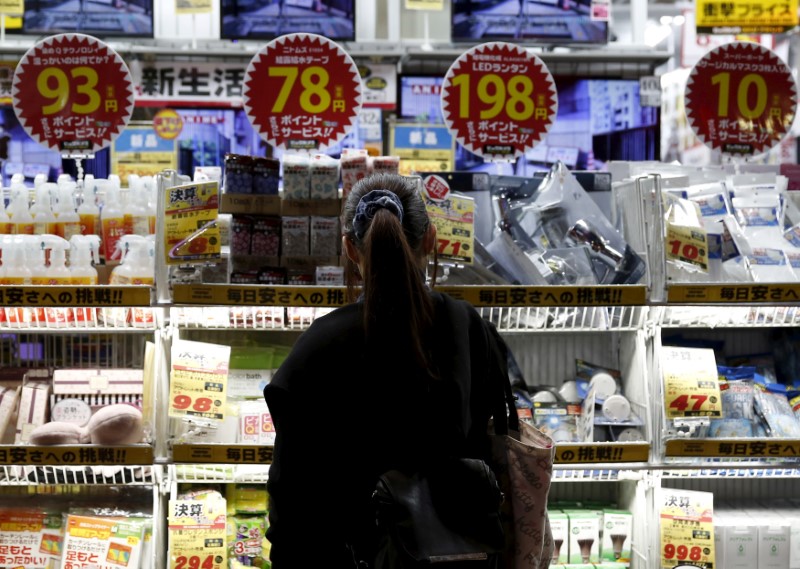TOKYO (Reuters) - Clear indications of a recovery in Japan's consumer spending are expected next week, a Reuters poll has found, with June household spending seen increasing for the first time since February 2016 while retail sales rack up an eighth gaining month.
Core consumer prices were seen likely to maintain a moderate increase in June led by energy costs, but the prices of other items were expected remain soft - emphasizing the economy's lack of inflationary pressure.
The poll showed household spending was expected to grow 0.6 percent in June from a year earlier with retail sales seen rising 2.3 percent for the month.
"Consumer spending is picking up as higher share prices helped consumer sentiment and wages were relatively good," said Yoshiki Shinke, chief economist at Dai-ichi Life Research Institute.
"There is a high chance consumer spending will contribute positively to economic growth in April-June."
Japan's economy expanded for a fifth straight quarter in January to March and analysts see the economy continuing to grow in the April-June quarter. GDP data is due mid-August.
The poll found that Japan's unemployment rate was seen likely to fall to 3.0 percent in June from 3.1 percent in May, and the jobs-to-applicants ratio was seen at 1.5, the highest level since February 1974.
"The economy is recovering and firms' labor shortages remain severe. So the jobless rate could go back to below 3.0 percent again in coming months," said Takeshi Minami, chief economist at Norinchukin Research Institute.
The poll forecast the core consumer price index (CPI), which includes oil products but excludes volatile fresh food prices, would rose 0.4 percent in June from a year ago, unchanged from May.
The internal affairs ministry will announce the CPI, employment data and household spending data at 2330 GMT on Thursday (8:30 a.m. on July 28 Japan time). The trade ministry will issue the retail sales at 2350 GMT the same day.
The Bank of Japan kept monetary policy steady on Thursday but once again pushed back the timing for achieving its ambitious inflation target, reinforcing views it will lag well behind other major central banks in scaling back its massive stimulus program.
